- Blog
- Food & Agriculture
- Bee Action
- Kroger needs to stop selling food grown with Dow’s toxic nerve gas pesticide
Kroger needs to stop selling food grown with Dow’s toxic nerve gas pesticide
by Jason Davidson, food & tech campaign associate
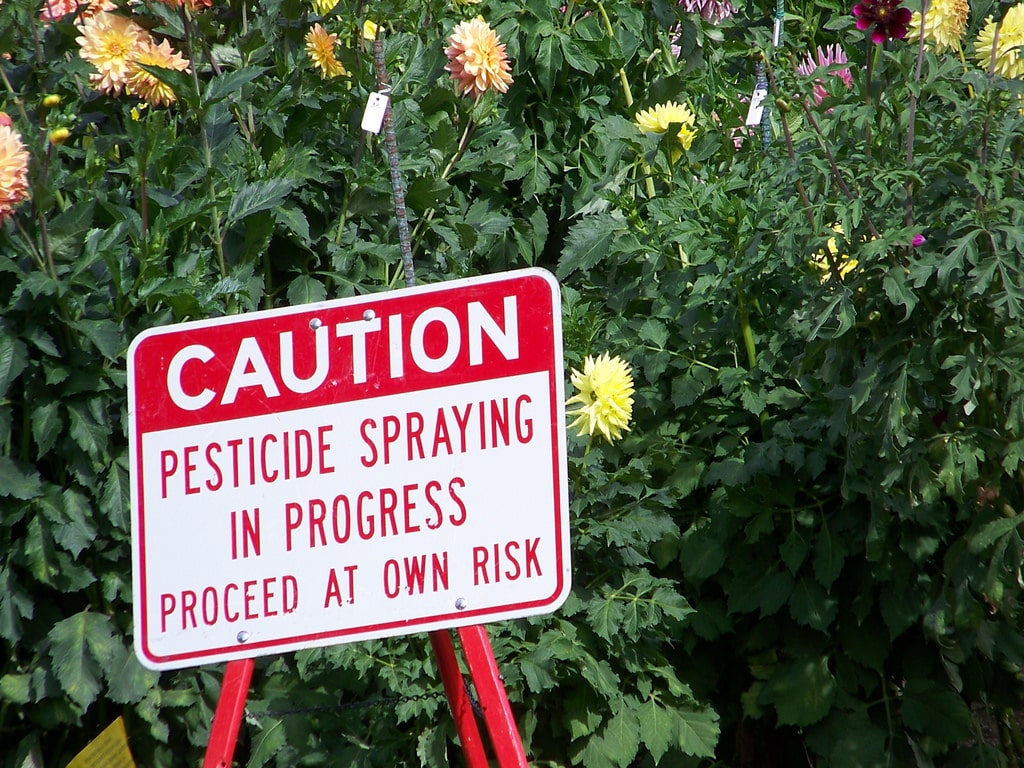
Donate Now!
Your contribution will benefit Friends of the Earth.
Stay Informed
Thanks for your interest in Friends of the Earth. You can find information about us and get in touch the following ways:
Last December, EPA released new scientific assessments that found bee-killing neonicotinoid pesticides (neonics) kill and harm birds and aquatic life. In January, California announced it is putting a freeze on all new uses of bee-killing pesticides.
Unfortunately, while we’ve seen progress in the fight against neonicotinoids, the Trump administration handed Dow Chemical a license to pollute our communities and harm our children by reversing EPA’s pending ban on Dow’s toxic nerve gas pesticide chlorpyrifos. This chemical, a component of nerve gas developed by the Nazis in World War II, was banned two decades ago for home use, but is still being used on farms across the U.S. with terrible consequences for our health and environment.
Chlorpyrifos contaminates our food and water, and agricultural workers and families in rural communities are at the front lines of exposure to this neurotoxic chemical. Strong science demonstrates that low-levels of exposure in children can result in reduced IQ, loss of working memory and attention deficit disorders. In adults, it has been linked to Parkinson’s disease and lung cancer. It’s also toxic to pollinators.
While the Trump administration sides with Dow over our children, workers, rural communities and pollinators, we must act to get this pesticide out of our food system. Supermarkets like Kroger — the largest traditional supermarketin the United States — are still selling food grown with bee and people harming pesticides. It’s time for Kroger step up and protect people and pollinators.
This fall, thousands of individuals from across the country signed up to go shopping for the bees.
Shoppers took two pictures when they went to their supermarket: one with all the food they would purchase at Kroger pollinated by bees:
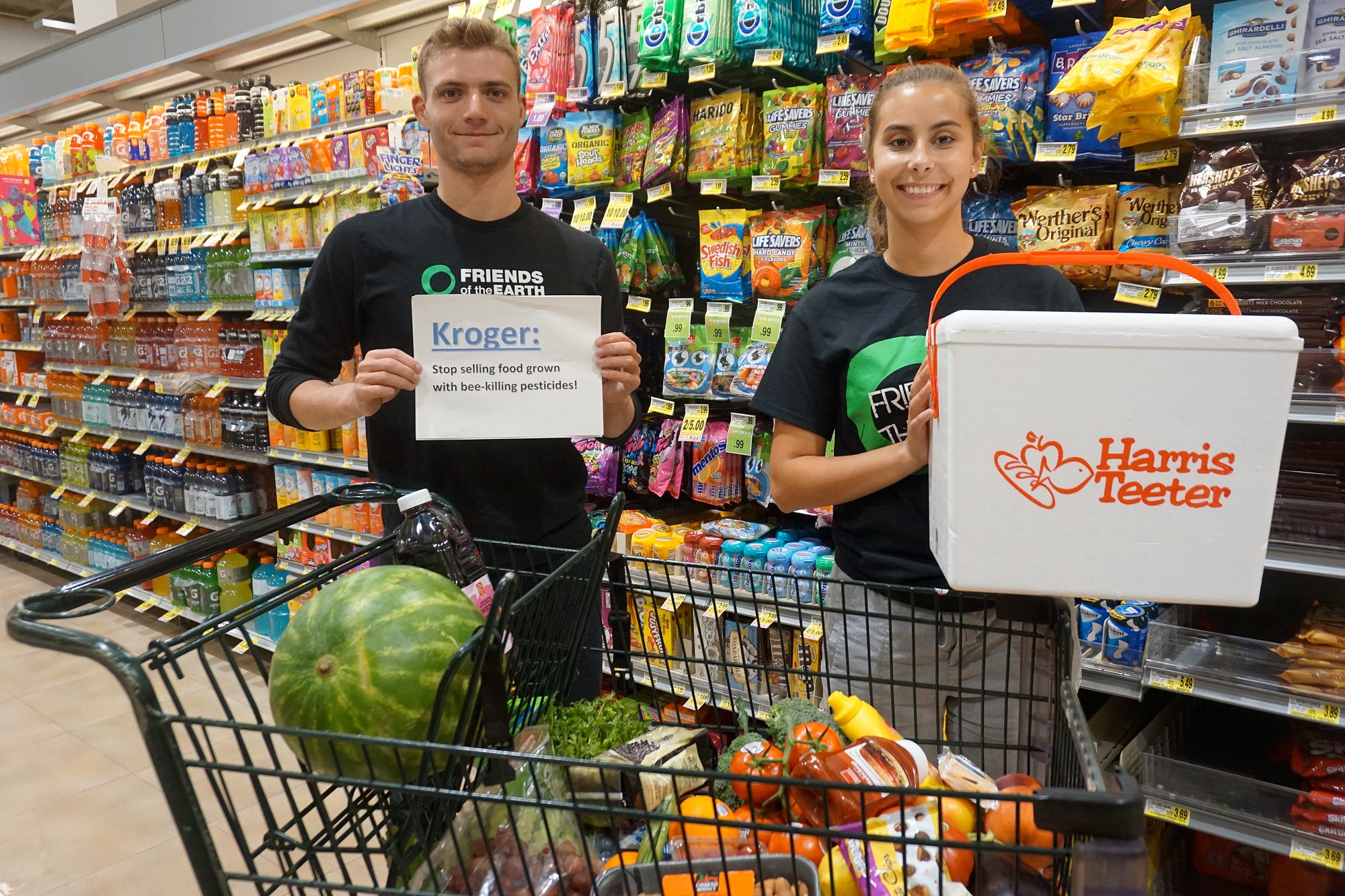
And one with only food not pollinated by bees:
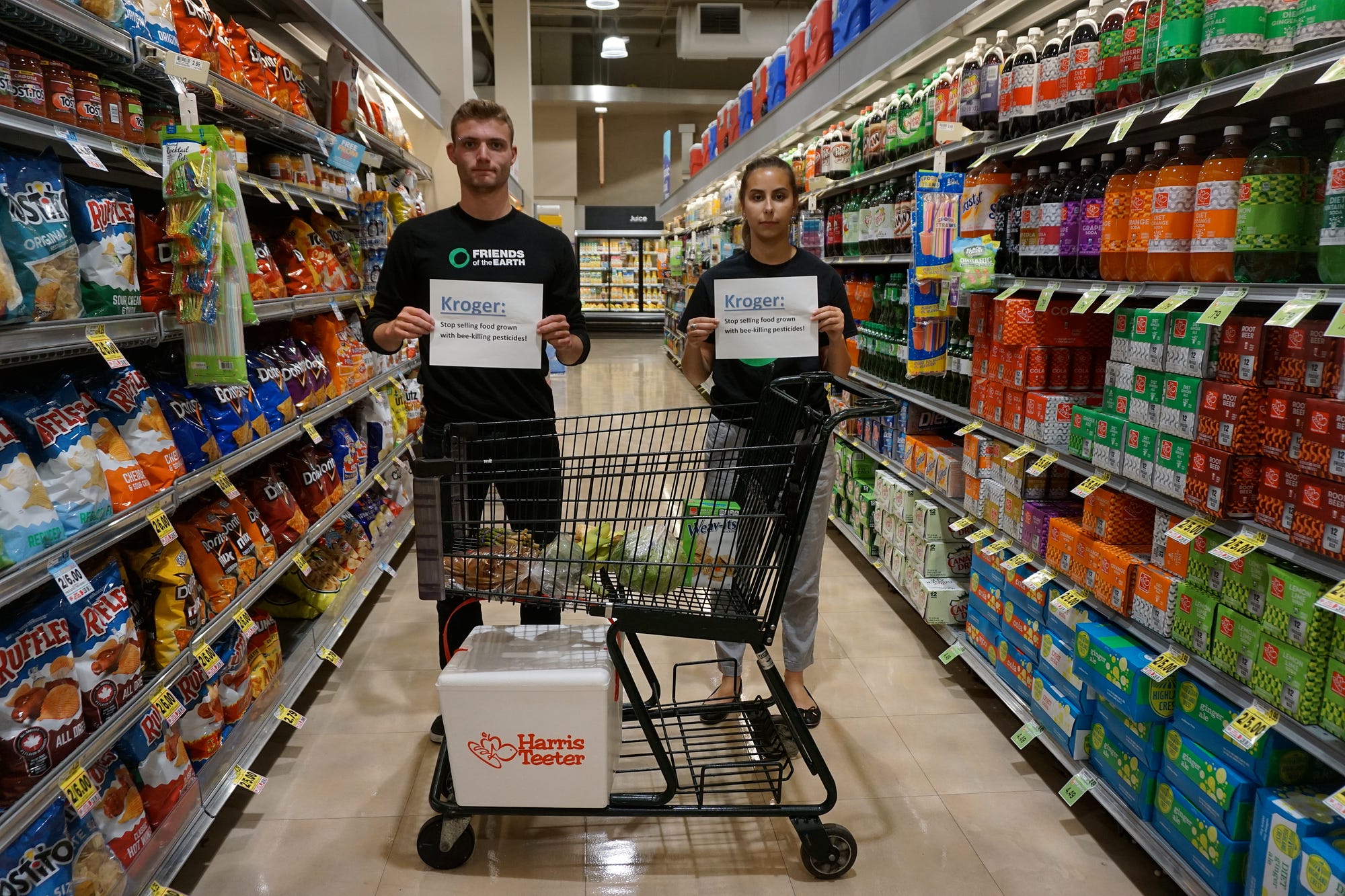
It’s clear that Kroger’s shelves would be pretty bare without pollinators. Bees are responsible for one in every three bites of food we eat. If Kroger doesn’t shift away from bee-killing pesticides like chlorpyrifos, and neonics, it risks running short of some our most delicious and nutritious fruits and vegetables.
Kroger needs to step up and take action to help stop the bee crisis and keep these foods plentiful into the future. Not selling food grown with bee-killing pesticides and increasing domestic, USDA certified organic offerings to 15% by 2025 would keep customers’ shopping carts looking like this:
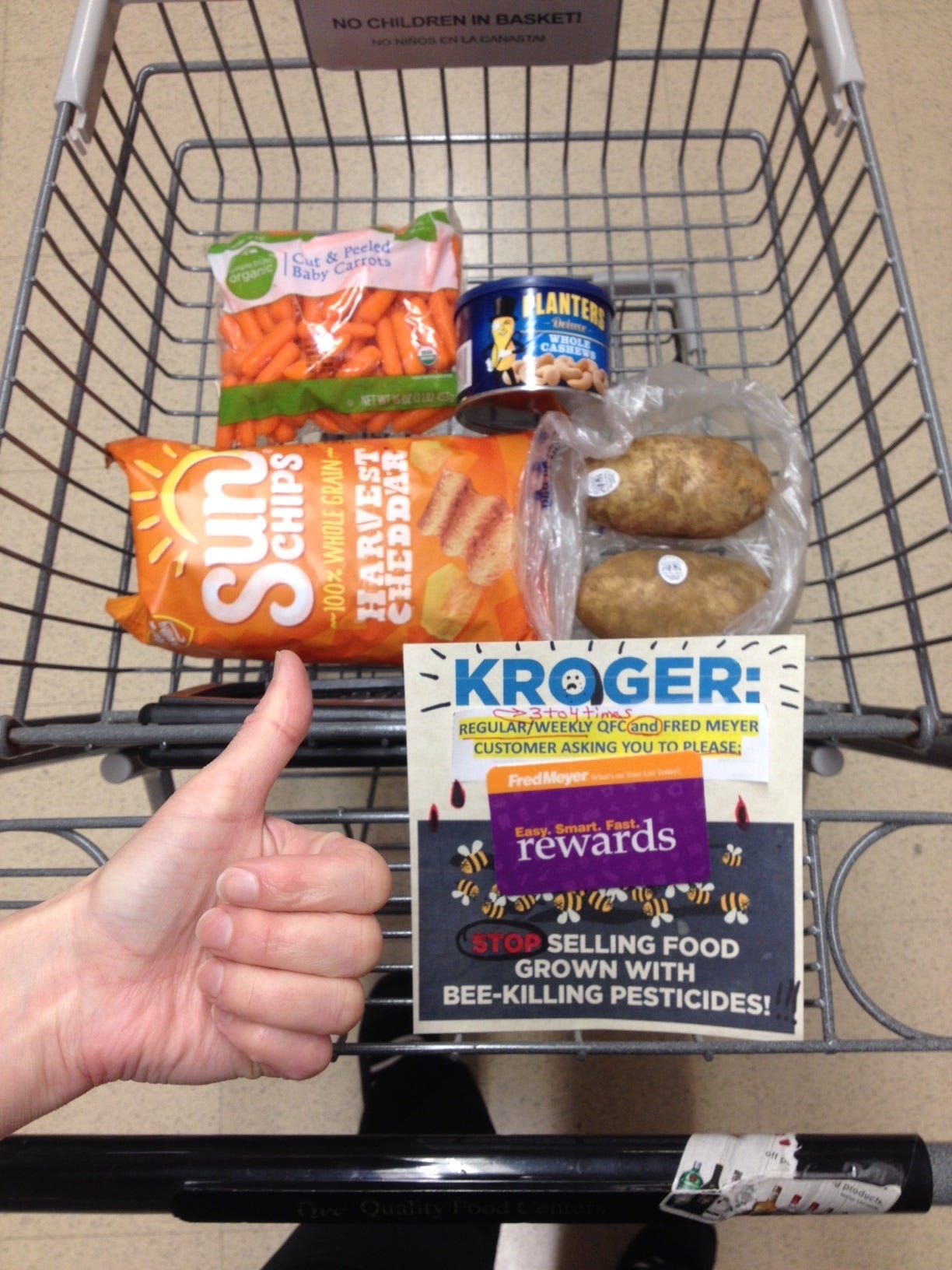
instead of this:
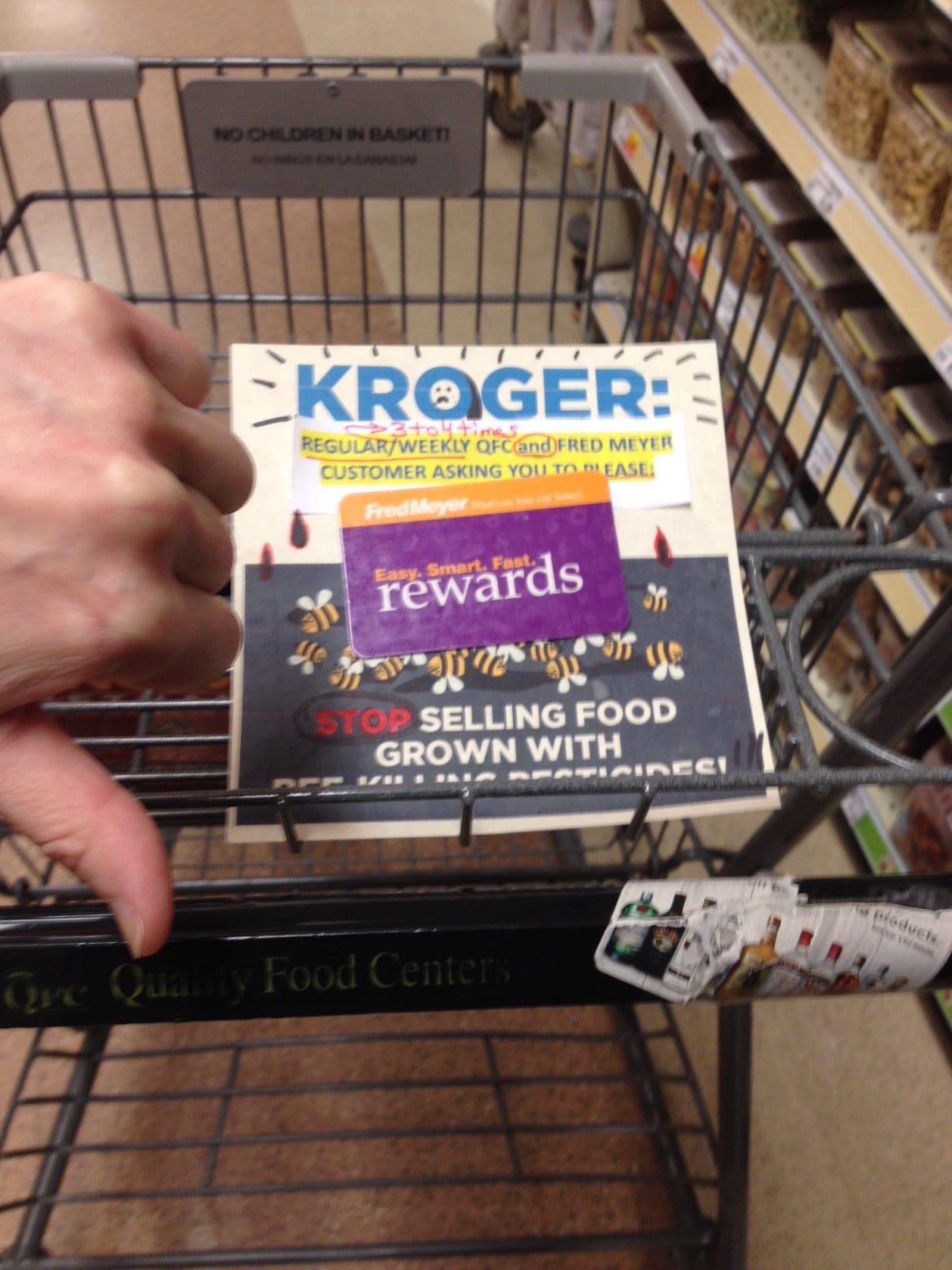
We went to Kroger’s annual meeting to impress upon its shareholders how important pollinators are to people and the planet. CEO Evan McMullen told us that Kroger is waiting for EPA’s to finish its review of neonicotinoids, which will not be until 2019, or possibly later given the anti-regulatory, anti-science fervor of the current administration.
Professor Ian Boyd, Chief Scientific Adviser at the UK’s Department of Environment, Food and Rural Affairs, recently affirmed that it is wrong for regulators to assume that pesticides are safe at an industrial scale. And this isn’t a small issue. A new study in Science found neonicotinoids in 86% of honey product samples in the United States, and an average of 75% around the world. Another recent study found that the number of pollinators and other flying insects has declined by more than 75 percent over the last 25 years, largely thanks to pesticides. Scientists say this indicates we are in the midst of an “ecological Armageddon.”
Kroger’s leadership on this issue could help protect pollinators and public health by reducing pesticide use. Eliminating toxic pesticides on its conventional food offerings and increasing its offerings of domestic organic food, free of toxic pesticides, will help Kroger meet customer demand for healthy, safe and delicious food, now and in the future.
Call Kroger today and tell the retailer to stop selling food grown with bee-killing pesticides and increase domestic USDA certified organic offerings to 15% by 2025. Remind Kroger how much it has to lose if it doesn’t take action immediately.
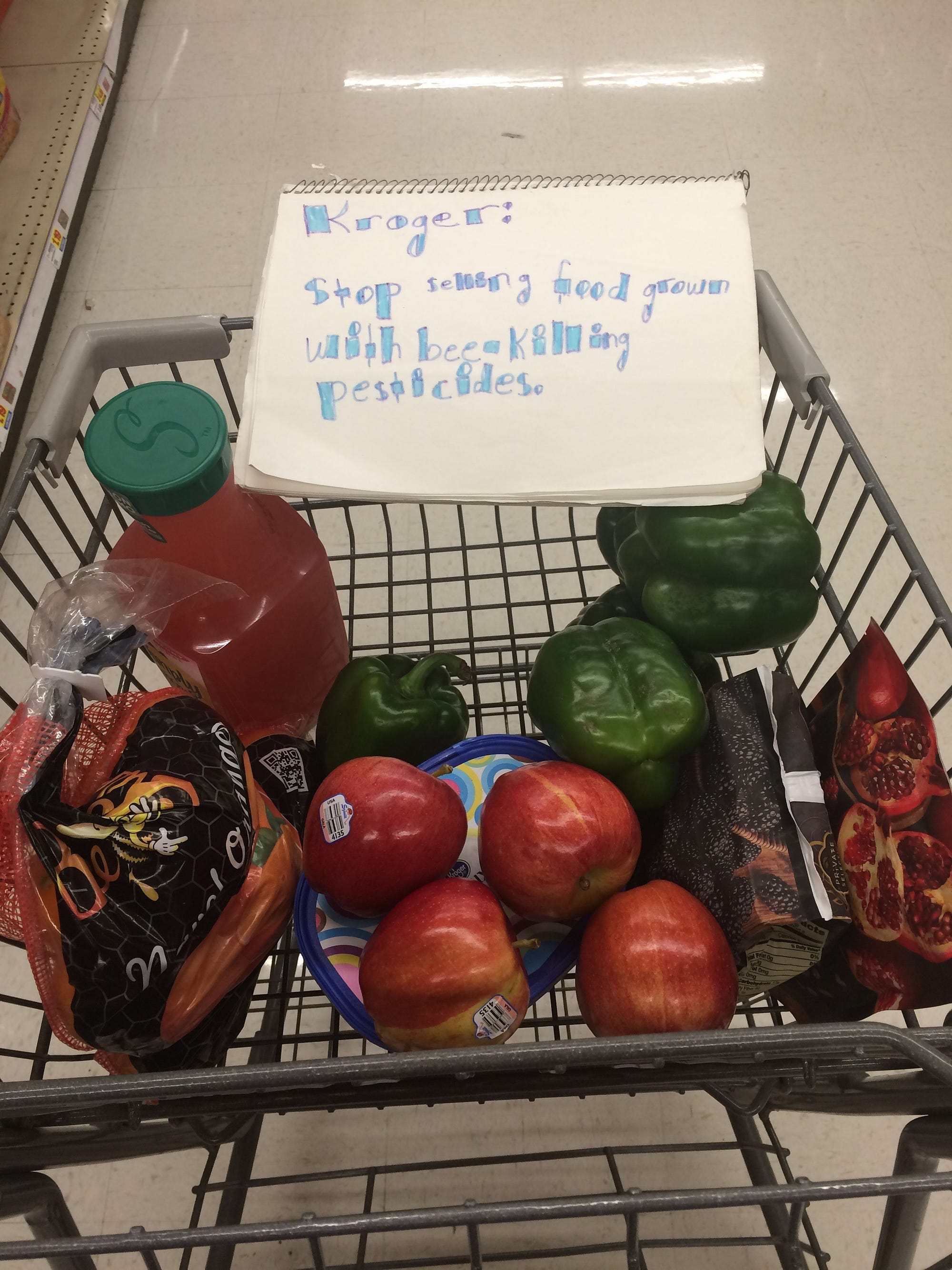
instead of this:
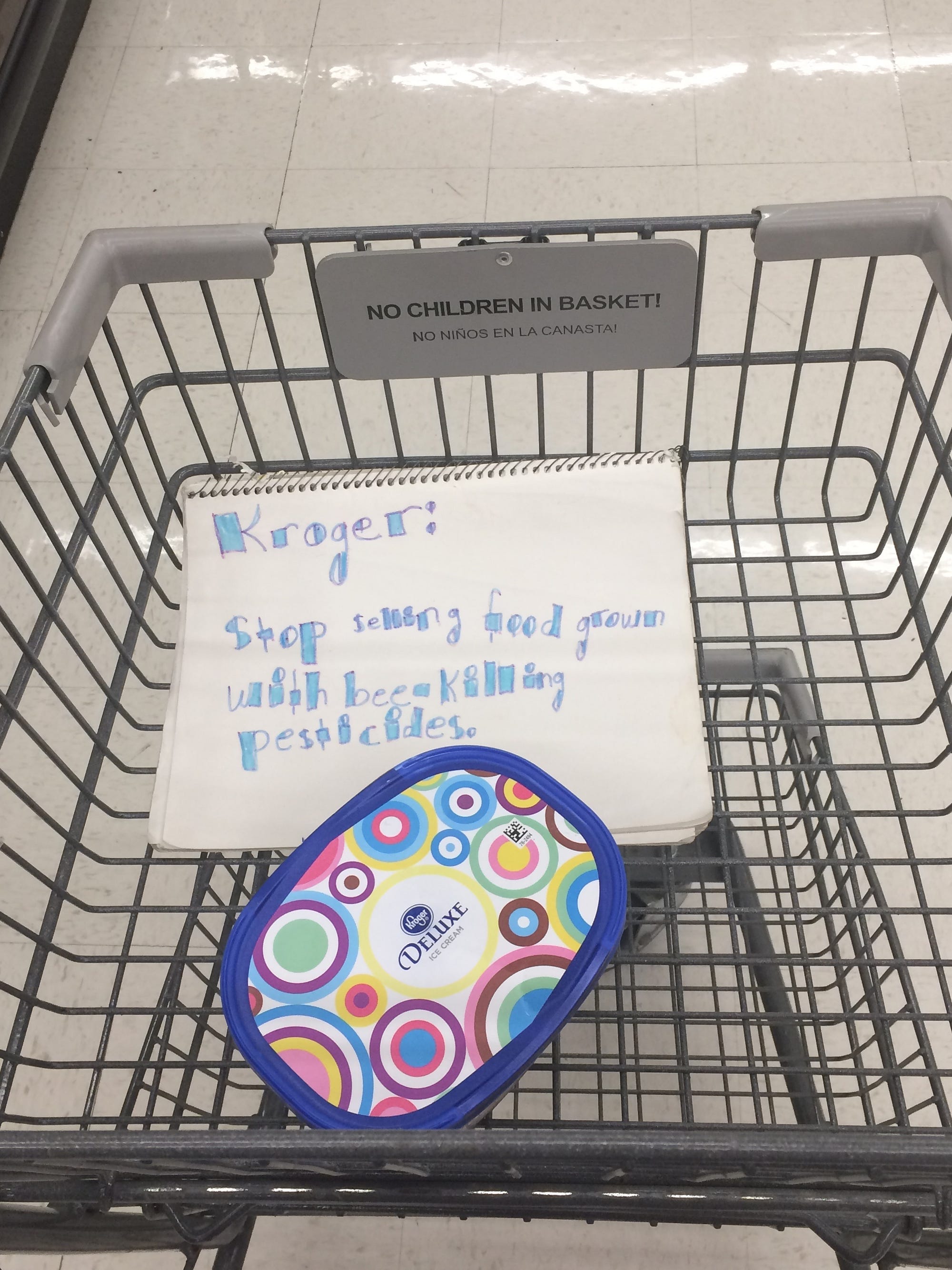
Kroger number: 1–800–576–4377
Sample script: “Hi, my name is _______ and I’m a concerned Kroger customer in xxx city. I’m calling to urge Kroger to help protect bees, butterflies and other pollinators, upon which our food supply depends, by committing to establish a pollinator protection policy that includes the phase out of pollinator-toxic pesticides, including neonicotinoids, chlorpyrifos and glyphosate, in your company’s supply chain and encourage suppliers to employ alternative pest management strategies. I also urge your company to increase its offerings of USDA organic food, prioritizing domestic, regional and local producers.”
